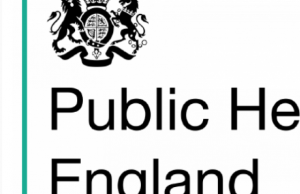
Good to know
TPD is short for the Tobacco Products Directive, and is the standard way of referring to the European Tobacco Products Directive. The full name of this Directive is “Directive 2014/40/EU of the European Parliament and of the Council”. It specifically regulates vaping products in the same way as tobacco-related products by imposing certain regulations on Member States.
Each Member State then transposes this regulatory framework into its own legislation, and specifically into its public health code.
Key dates for the TPD
- 1989 : introduction of the first European regulation on tobacco products, regulating their labelling.
- 1990 : a maximum tar level is set
- 2001 : the presentation, sale and manufacture of tobacco products are now regulated.
- 2009 : Europe considers amending the existing TPD to include electronic cigarettes.
- 2010 : the EU organizes a public consultation, strongly influenced by the tobacco industry.
- 2013 : demonstration of vaping devices to the European Parliament.
- 2014 : start of a citizens’ initiative to protect vaping.
- 2014 : a professional English vaper files a complaint against the future TPD.
- 2015 : numerous vaping events take place across Europe.
- 2014 : e-cigarettes are regulated for the first time.
- 2016 : all European Union Member States must now apply this new regulation.
Other regulations around the world
The world’s largest market, the US, takes a very different regulatory approach from Europe. To find out more, take a look at our articles on regulation in the Unites States and our articles on the FDA (Food and Drug Administration).
The TPD has changed the world of vaping profoundly, for professionals and individuals alike. Let’s look back at the history of how this new regulatory framework came about.
Tobacco product regulation
Tobacco products have been regulated in Europe for many years now. The first European Directive on tobacco dates back to 8 December 1989, but then it only addressed labelling.
The following year, on 30 May 1990, a new Directive came into force to set the maximum permitted tar content in tobacco cigarettes.
It was another 11 years before the next, tougher regulation was adopted on 18 July 2001, to regulate the manufacture, presentation and sale of tobacco products.
This was amended three years later on3 April 2014to reflect the “scientific, commercial and international developments” of recent years. In other words, to regulate “smokeless tobacco products”, i.e. e-cigarettes, which appeared on the market in around 2007 and were therefore not covered by the 2001 Directive.
Many challenges against the introduction of this new version
By tobacco companies
While this new version of the TPD affected vaping products for the first time, it was also restrictive for tobacco products like cigarettes. Many challenges were made by the tobacco companies to amend it and delay its entry into force for as long as possible.
So by 2010, barely a year after Europe first mentioned a possible revision of the 2001 directive, Big Tobacco had already swung into action.
For example, during a public consultation carried out that year, an analysis of the answers showed that out of the 85,000 answers collected, a large number came directly from Italy and Poland, where the tobacco industry had successfully carried out extensive promotional campaigns.
Numerous lobbying campaigns were also carried out, particularly towards several Directors General of the Commission, and at its highest levels too, such as in the General Secretariat of the institution, and even directly towards its Chairman. These meetings were never official, since no minutes were taken at the time. This is normally mandatory, and so had raised many questions about these “secret” meetings.
Another method used by the tobacco industry was to send various messages from some of its employees, who had previously worked for Europe themselves, to the Commission. However, once again, we will never know what was really said during these meetings “between friends” because they were not recorded anywhere either.
On top of all this, some tobacco companies also invited certain governments to visit their manufacturing plants, or even their headquarters. Meetings which, for some, will have borne fruit. The Dutch government, for example, invited by the Philip Morris International tobacco company (PMI), subsequently promised to include its “contribution” in the report it was submitting to the committee.
By vapers
The majority of vapers were also against the revision of the 2001 Directive which imposed numerous restrictions on electronic cigarettes.
There have been many challenges throughout Europe.
For example, we could cite the EFVI citizens’ initiative, the legal proceedings by some professionals in the sector, parliamentary actions and public consultations in some countries, countless petitions (in Germany, Belgium), and demonstrations too (in Norway, in Italy, in Belgium, in Germany, and even in France).
What has changed since the TPD
Despite the protests, the 2014 TPD entered into force two years later, thereby establishing various regulations about vaping:
- Minimum safety and quality standards for all vaping products (e-cigarettes and e-liquids).
- An obligation for manufacturers to inform consumers about the ingredients used in their products.
- Various rules designed to protect children from the use of vaping products, such as childproof packaging.
- A ban on the advertising of electronic cigarettes.
- An obligation for manufacturers to inform Member States when introducing any new product into the European market.
- A tank volume limit for e-cigarettes of 2ml.
- A limit on the sale of e-liquids containing nicotine to a 10 ml format.
- A limit of 20 mg/ml maximum for the level of nicotine an e-liquid can contain.
- The obligation to display health warnings for vaping products.
TPD 3 in the pipeline
Although the 2014 version of the TPD hit the industry quite hard, it’s no secret that a new version is expected to be published soon. This revision is worrying vapers and professionals in the sector alike, particularly since the publication of the report by the Scientific Committee on Health, Environmental and Emerging Risks (SCHEER).
This report actually states that there is insufficient evidence that vaping helps people to quit smoking, that the flavours attract young people to vaping, that vaping is a gateway to smoking and that vapers are endangering their health by using e-cigarettes.










